Gershon Willinger
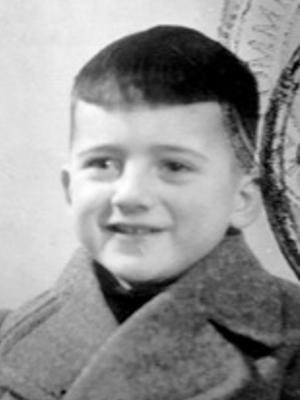
Born: Amsterdam, the Netherlands, 1942
Wartime experience: Hiding, camps
Writing Partner: Matt Falchuk
Gershon Willinger was born in Amsterdam, the Netherlands, in 1942. When he was just a few months old, his birth parents placed him in hiding with members of the Dutch resistance, Geert and Riek Schonewille, Gershon’s “war parents,” who gave him the non-Jewish name of Fritsje.
In February 1943, Gershon was discovered to be Jewish and was sent to the Westerbork transit camp. Both his birth parents were murdered in the Sobibor death camp in 1943. In September 1944, Gershon was transported to Bergen-Belsen and then to Theresienstadt, where he remained until liberation by the Soviet army. After the war, Gershon was placed with foster parents, with his war parents, and in a centre for Jewish war orphans. He was then taken in by a relative but was removed from her care and put into the care of foster parents, who eventually adopted him. Gershon was told he had an older sister, Rita, and they met in the Netherlands after the war. At the age of eighteen, Gershon immigrated to Israel, where he joined the army and then became a social worker. He married in 1970 and had three children. His family moved to England briefly, and then immigrated to Canada in 1977, where Gershon continued his career in social work. Gershon Willinger lives in Toronto.
An Unknown Child
As a child who was born during the Holocaust, I have no recollection of my early life or identity. People who survived the Holocaust at an older age can actually say who they were, but at an early age, I had gone through so many changes, including being held in concentration camps and staying in institutions and foster homes, that for a prolonged period after the war I really did not know who or where I was.
The youngest survivors have to be careful to separate fiction from reality. Fiction can become reality for some people because they identify with the way they perceive their experiences. Being a very young child survivor, my knowledge of myself comes from war documentation, lists and information given to me by others. The diligence of the Nazis in documenting all events and keeping accurate records through endless lists became a validation of my existence and a mixed blessing. In a way, the documentation and the lists are part of my personal heritage, and I place a lot of importance on them. The oppressors took their bureaucracy seriously. The Dutch were meticulous in terms of record keeping under the direction of the Nazis. Lists had to be prepared for the roundups of Jews from their homes or hiding places; they all had to be accounted for before deportation. Later in life, I found documents through the State Institute for War Documentation in Haarlem, the Netherlands. Not only did I find information clarifying my personal history but also that of my sister, Rita, stashed away in the bowels of the institution.
My life started like this: When I was a few months old, I was placed very courageously by my parents into hiding. First, I was given to a couple whom my parents had known before the occupation of the Netherlands and who worked in the Dutch resistance. Their names were Geert and Riek Schonewille. I am still in contact with their children. I was placed with them by my mother, Edith, who was in hiding while working as a maid at a nearby farm. She had fled with me to the north, to the province of Drenthe, on the German border. Geert and Riek (whom I shall refer to as my “war parents”) lived in the town of Coevorden. Many of the town’s people worked for the resistance. They hid not only Jews, but anyone who was hunted by the Nazi regime. I was told that the parents of my war parents hid a German soldier who had deserted from the German army, along with a Jewish man. My birth parents were acquainted with the Schonewilles through business, Geert being a potato farmer. Geert’s youngest brother, Johannes, still lives on the original family farm in Drenthe. He remembers me being brought by a resistance worker to his brother’s home. During the war, my war parents had three children — the oldest was a girl, Alie, and then two sons, Jan and Henk. Henk was an infant as well. I have been told by the family that Riek nursed us both.
I was born Gerd Israel Willinger. The name “Israel” was made mandatory by the regime to identify me as a Jew. When I arrived at my war parents’ home, I was renamed Fritsje Schonewille. Although most people in the area were involved with the resistance, somebody denounced me, and my war father and I were hauled off to the police station. Once there, I was undressed, revealing that I was a Jewish boy. My war father claimed that he did not know that I was Jewish. He spent time in prison but luckily was not executed for his “crime.” I was returned to my war parents’ home, and the maid, a Jewish woman in hiding with my war parents, had to prepare me to be taken to the Westerbork transit camp. This must have been a heartbreaking experience for her. All this information I obtained from Johannes Schonewille while visiting the Netherlands in 2002.
In February 1943, after arriving at Westerbork, I was placed in the children’s home and came under the care of Dr. Fritz Spanier. I remained in the children’s home until September 13, 1944. Small children were usually placed in transports to the death camps within a short time of arrival. A Dutch journalist, Elma Verhey, who did in-depth research for her book Om het joodse kind (About the Jewish child), revealed to me that the authorities were told that my father was a German officer and my mother a Jewish woman — a tale for survival. This did not mean that I could not be deported, but it did buy me some extra time.
On September 13, 1944, along with fifty other children ranging from approximately one to nine years of age, I was sent on the last transport destined for Auschwitz. We were accompanied by four young Jewish women, who were our caretakers during the journey. Later in life, I learned that the youngest of the group, a one-year-old girl, died en route. The railway lines to Auschwitz were bombed as the Allies advanced, and we were sent to Bergen-Belsen instead. I recently met an elderly Holocaust survivor who told me that she remembers our arrival at Bergen-Belsen, where we were immediately quarantined, as typhus was widespread in the camp. She said, “I remember your group’s arrival and us waving to you children through the window.”
This information was very important to me, as I constantly need validation of my personal history, especially being a child without a memory, or more precisely a child without a clear identity. This proves to me that the events of the Holocaust will continue to haunt me. Throughout my life as one of the “unknown children,” I have always questioned my identity. After a short period, we, the unknown children from the Netherlands, were sent to Theresienstadt and remained there until liberation. People always tell me, “It is impossible that a small child like you survived three camps.” In the past, because of my young age, I always felt that I had to justify my own history. Only recently do I not feel that need any longer. My simple answer to their comment is, “Well, I did survive, and indeed it was a miracle for me, as it was for the other forty-nine children who survived with me.” Some adults were meant to live and tell their story, and some very small children lived to tell their story as well.
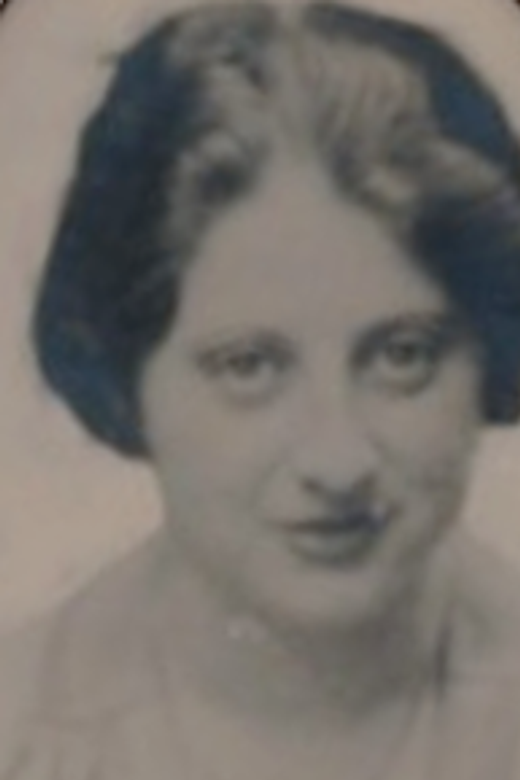
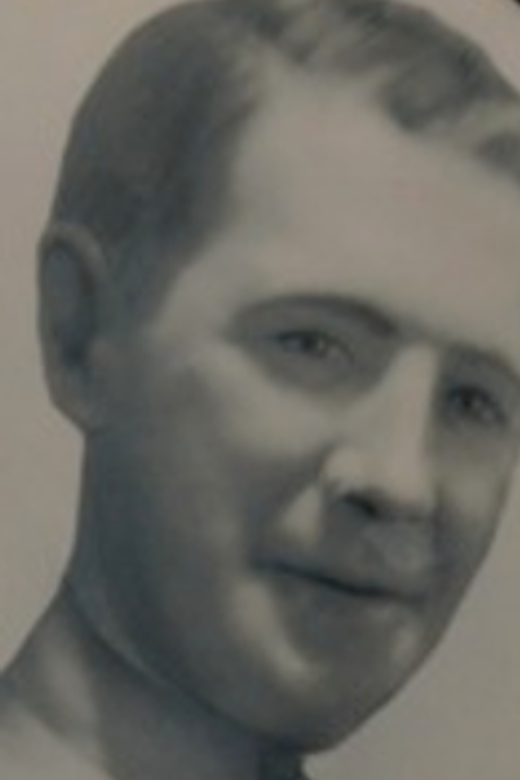
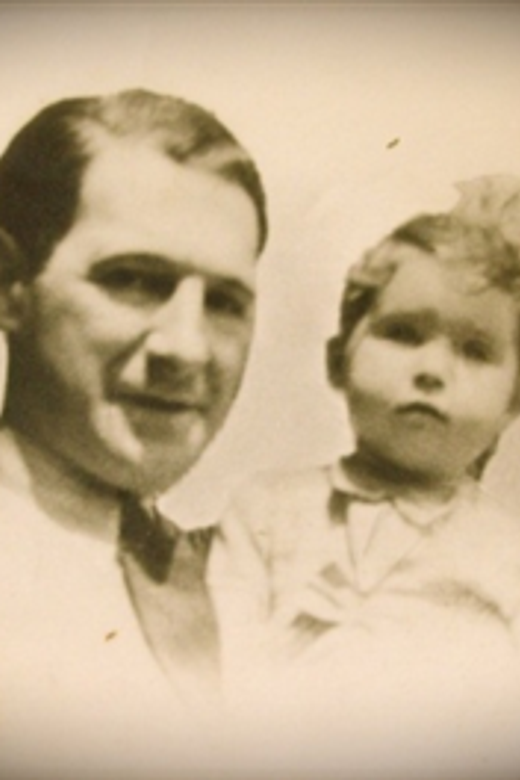
I had gone through so many changes, including being held in concentration camps and staying in institutions and foster homes, that for a prolonged period after the war I really did not know who or where I was.
“Little Shoah”
My earliest memories begin at the time of liberation from Theresienstadt. I remember being held in the arms of a very kind man, probably a Soviet soldier, who hugged me and gave me sweets to eat. I remember being lifted into a truck along with other small children. The journey seemed endless, as night and day became one. The truck made stops along the way to pick up more children. The final destination of the journey was the Netherlands, but of course, I didn’t know this.
Although my short life during the war was chaotic, as it was for many other children, after my arrival back in the Netherlands, life became even more fragmented, as it was still very difficult for Jews. This period after the war is referred to by the historian Isaac Lipschits as the “Little Shoah.” The children who had survived, including me, no matter how young, were at the mercy of the authorities, who didn’t show concern for our identities as Jews. Although I was physically taken care of, the constant movement from home to home or from institution to institution until the age of almost eight was more distressing for me than the war itself, especially as I became conscious of what was happening to me.
The following events cannot possibly be in chronological order. I was young and experienced traumas during and after the war. However, I remember going back to live with my war parents. Obviously, I did not know who they were by then. Recently, Alie, their oldest daughter, shared with me some of the circumstances surrounding my return to them. Apparently, they did not know what to do to stop me from screaming, or how to deal with the welts on my back or the terrible scars on the back of my head.
The memories I have of my war parents and their children are good ones. Once a week, the zinc tub would come out into the kitchen and water would be boiled. Alie had the first bath, and the boys went in after. There were homing pigeons in the backyard and a large fruit tree. Henk, their youngest son at that time, was my age and we spent most of the time together. His mother treated us like twins. We used to roam the fields across from the house and dig out turnips, wipe them on our clothes and munch on them. I was introduced to Christianity. I remember sitting at the table and being taught to bow my head, close my eyes, fold my hands and give thanks for the food we had been given. On several occasions we went to church. This was an old church; the walls were thick, the acoustics were beautiful and the chanting of the hymns was mesmerizing. I was happy to be there. Not knowing that I was a Jewish child, attending church was normal to me. In a short time, I had settled in well. I was told later in life that my birth sister, Rita, was brought for a visit. However, I have no recollection of this visit.
After I was finally feeling secure, the OPK (Commission for War Foster Children) suddenly took me away from my war parents and my newly acquired sister and brothers. It was especially difficult to be separated from Henk, to whom I was closest. Because of my history, the only defence mechanism I had was the ability to disassociate myself from the situation, and I have continued to display this behaviour throughout my life. The reasons for being removed from their home are still unclear to me, although I believe that simply being a Jewish child may have been the reason. Alie later told me that her parents thought of me as one of their children. It was hard on the family, especially their mother, when I was removed from their home. Alie remembered her parents travelling to Utrecht, where I later lived with my foster parents, and secretly watching me in the playground during recess. At that time, the social service agency advised my foster parents that it was in my best interest to sever all ties with the Schonewilles.
Another stop for me was in a seaside resort on the North Sea coast. From what I later learned, this was a large centre where Jewish war orphans were given the opportunity to spend some time recuperating with healthy sea air and good food. We were all undernourished. I recall mealtimes where the older children always grabbed food from each other’s plates. These children were very loud and fought a lot. We, the youngest children, sat separately and had a caretaker watching over us. I shared a room with a boy my age who limped, which I did not realize at the time was caused by polio. The daily walk to the beach is still vivid in my memory as the most exciting part of the day. I believe I also spent a short period of time in another orphanage before being placed with Tante (Aunt) Marga Weinberg, a cousin of my birth mother, Edith.
Tante Marga lived in Bilthoven, a small town near the city of Utrecht, with her father, who used a wheelchair. He was known to me as Oom (Uncle) Julius. Tante Marga was unmarried, well-educated and an accountant by profession. She was very concerned about my general health and intake of food. Apparently, I was very small for my age. I especially enjoyed being tucked into bed. I attended kindergarten and enjoyed the long solitary walk to school and back. It’s hard today to believe that someone so young and traumatized would be allowed to walk back and forth to school alone. Once again, I settled into everyday life, not knowing that life was to change yet again.
Two strangers, bearing gifts for me, arrived at my Tante Marga’s home. I remember the woman being very pretty with very red lips. Both she and the gentleman with her paid a lot of attention to me. After they left, life continued as usual. After some time, they returned, again with gifts. After this second visit, Tante Marga asked me if I would like to visit them, and of course I said yes, not knowing that this visit would be permanent. The placement was arranged by L’ezrat Hayeled (To the Aid of the Child, the Jewish social service for war orphans). Later I learned that it was deemed inappropriate for a “spinster” to become a guardian of a small child. That Tante Marga was part of my biological family was not important to the authorities then; this situation seems unthinkable in today’s Western society.
Here I was, at the ripe old age of eight and on the move yet again. At this point, I accepted that moving from place to place was normal. The year was 1950, and the lady with the red lips and the gentleman were to be my foster parents — Esther and Manfred Klafter, a childless Jewish couple. I remember calling them Tante and Oom. They desperately tried to make me call them Mama and Papa. In the beginning I constantly forgot to call them Mama and Papa, but wanting to please them, I eventually did. Of course, my previous history did not leave me without problems. I was unable to talk properly due to large tonsils and adenoids. This was taken care of immediately after my arrival; the operation was performed at the Central Military Hospital in Utrecht. I was not toilet-trained and remember being taught by a nephew of Esther how to climb up the stairs. I recently discovered, in documentation from that time, that I had been labelled “retarded.”
I was a constant challenge to the Klafters, always testing them to see if I was going to be sent away again, which I really hoped for, as I felt most comfortable being in a group of children with similar backgrounds. My acting-out manifested in me picking the ivory off their Bechstein concert piano keys and smearing chewing gum on the strings inside, shouting childish quips into the local cathedral on the way to school and being picked up by the police, just to name a few. Knowing that my behaviour needed professional intervention, they wisely sent me to a child psychiatrist, which was very unusual in the 1950s. I remember being observed by Dr. Kamp while playing with sand and toys. He also bombarded me with questions. These weekly visits continued until I was thirteen years old.
I liked school, as it was a constant in my life. I was known as Frits Klafter, but officially my name was Gerd Israel Willinger. Antisemitism was still alive and well in the Netherlands, and a few teachers at school would make “mistakes” when calling me in class, “Gerd Willinger — oh, I mean Frits Klafter,” and then the children would ask questions. I also remember clearly that when it was noisy in the classroom, the expression used by the teacher was, “It is like a Jewish fish market in here.”
In the early days with the Klafters, I was told that I was Jewish and that I had parents who had been killed during the war. This was meaningless to me at that time. Also, shortly after my arrival at the Klafters, a visit was arranged between my sister, Rita, and me. I had been told that I had a sister, but at that time it had no meaning for me. It would still be a long time before I understood the concept of family.
***
Throughout my life, I have always struggled with being the hearsay child, too young to remember, yet old enough to be strongly influenced by my past. I always lacked a sense of belonging but had the flexibility to look out for myself and make sure that my needs were met. I have gathered some information here and there about my mother and father’s background, often wondering if I really was the child who I am told I was.
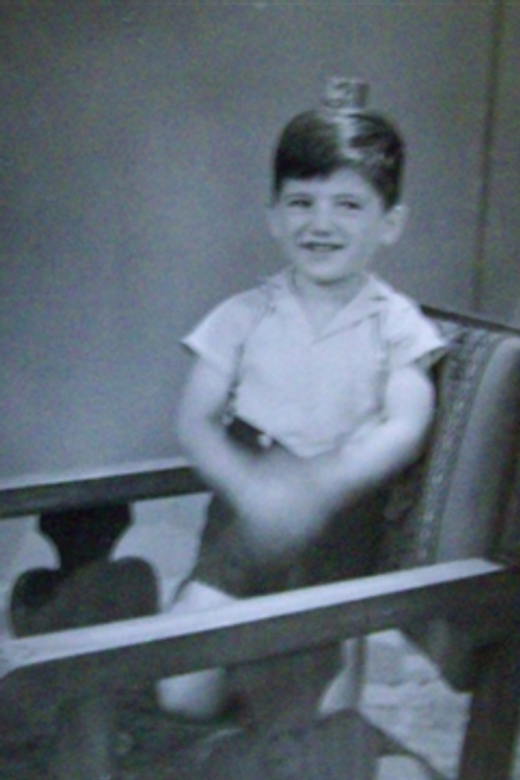
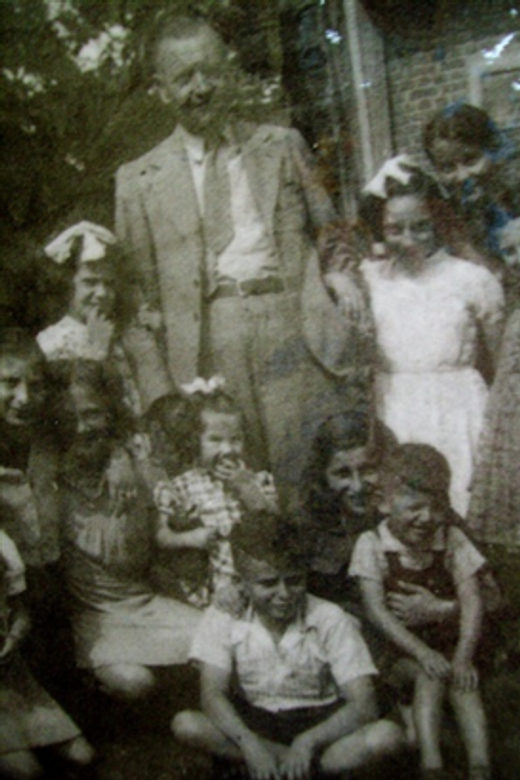
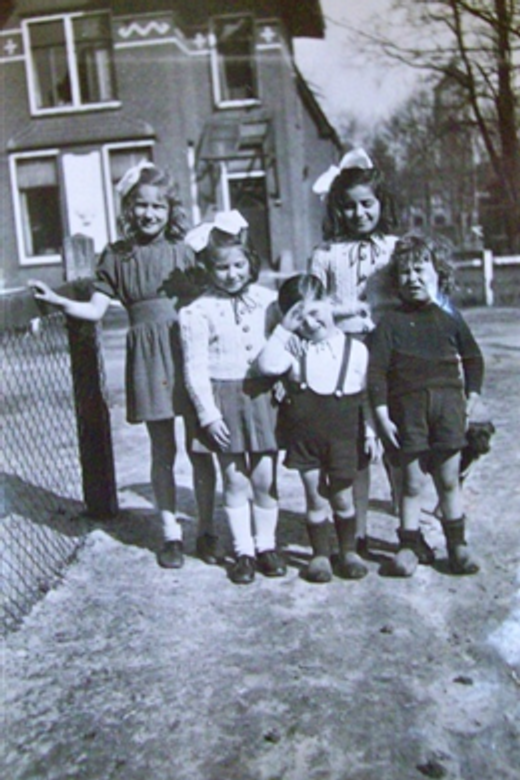
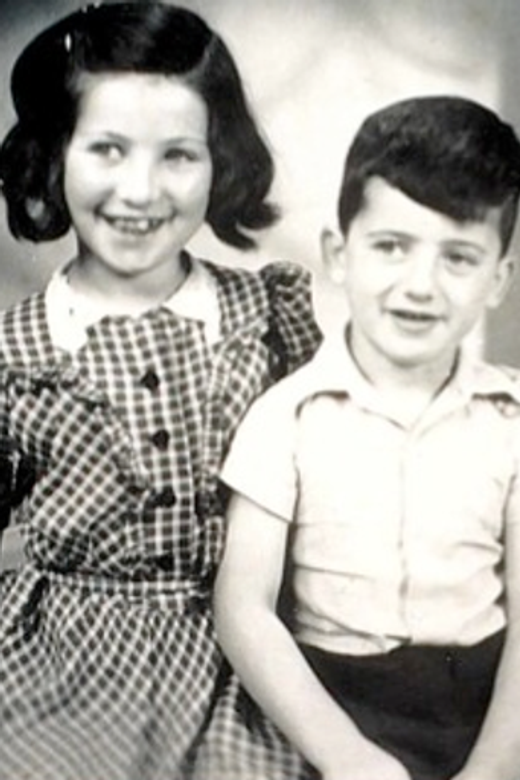
Dealing with the Past
We arrived in Canada at the end of 1977, and I started a job as a youth and camp director in the Hamilton Jewish community. I worked for five years in that capacity while our children attended the Hamilton Hebrew Academy. We enjoyed the time spent in Hamilton. The children blossomed, and we made many lasting friendships, mostly with immigrants like ourselves.
During the summer, while working as camp director at a conservation area, I overheard a Dutch regional accent that I remembered from my early childhood. I soon discovered that the children of my war parents lived in the Niagara region. I found the telephone number of the oldest daughter but kept it for one year, as I was reluctant to reopen the wounds of the past. With my wife Jane’s encouragement, I reluctantly called. I clearly remember my first words: “Are you Alie?” She answered, “I was Alie, but in Canada I’m known as Alice.” I questioned her about her parents taking care of an infant during and after the war. Her immediate reply was, “Is that you, Frits?” She used the name given to me by her parents. She was very excited and immediately invited us to meet her family. On arriving at their home in Niagara Falls, Ontario, we were greeted by the entire family from near and far. I learned that their father had Alzheimer’s disease and was living in a long-term care facility. He no longer recognized his own children. The moment he was brought to their home and saw me, however, he said, “Is that you, Frits?” As he walked further into the room, he noticed a photograph lying on the coffee table and said, “That’s Edith,” referring to my birth mother. Although he did not remember what happened five minutes ago, he remembered these important facts. This once again was a validation of my personal history. My war parents had taken it upon themselves to keep my story alive by telling their children and grandchildren about my existence, and my arrival at their home did not need further explanation.
After the death of Geert Schonewille, I felt the need to give the family some kind of recognition for their bravery and kindness to me and others in need of protection during the occupation of the Netherlands. I was able to have them recognized, although not as Righteous Among the Nations because I was too young to provide adequate information to meet the criteria. Despite this, the family was awarded an olive-wood plaque by Yad Vashem in recognition of their heroism. Johannes accepted this plaque on behalf of his late brother and later passed it on to his niece, Alie, who brought it back with her to Canada.
After spending five happy years in Hamilton, I once again felt the need to return to Israel. The time was drawing near for my eldest daughter to go to high school, and being in Israel would give her the opportunity to bond with friends with whom she’d eventually join the army.
We arrived in Israel in the summer of 1983, giving the children time to adjust to their new environment. We moved to Arad, where I was offered the position of social worker at an absorption centre for new Ethiopian immigrants. I really loved working with the Ethiopian community. However, after six months we realized that we were unable to sustain ourselves financially, and with much reluctance, we had to return to Canada. We settled in St. Catharines, Ontario. On reflection, this seems a mirror image of my childhood, being constantly on the move. Only this time, it involved the lives of my wife and children, so much so, that during the course of one school year, our children attended four schools in three countries. My wife informed me that the furniture would now be nailed to the floor; in other words, it was time to settle down in one place.
Back in Canada, I accepted employment as a social worker for Children’s Aid, working with children whose lives were in turmoil. Providing them with the opportunity to lead a normal life gave me great satisfaction.
The ensuing years were very busy, raising children through adolescence, hormonal ups and downs, high school and university education. We joined the local synagogue, over the years becoming very active in the B’nai Israel Congregation of St. Catharines, where I served as both vice-president and president of the congregation. In 1988, my father-in-law passed away in England, and my mother-in-law came to live with us in Canada. She lived with us until her death in 1999. All of this did not leave me time to think about my own issues. I found out much later that child survivors’ problems often manifest themselves once there is more time for reflection.
In the early 1990s, pressure was building up within me. My work was stressful. Suddenly I was unable to function under pressure, and I became extremely anxious. I did not understand what was happening to me. I was unable to deal with my children’s needs, and the slightest stress made me look for escape, leaving my wife to deal with all the family issues. At first, I was able to pretend all was okay. But I realized I could not pretend any longer when I started driving to work and then sitting in the parking lot in tears, once again having recollections of my chaotic childhood. Arriving at work at 8:30 a.m., while trying to wipe the tears from my face and blow my nose, became increasingly difficult. When my colleagues asked if I felt well, I would tell them that I had severe allergies. The thoughts about my past would appear at random. It was easier to deal with when going out for a walk and the tears could flow freely. I am still surprised today that I was able to function normally and be productive.
After finally realizing that I needed professional help, I approached my family physician. The doctor questioned me about my background, told me that I was depressed and needed medication, and referred me to a psychiatrist. After the psychiatrist familiarized himself with my history, I was diagnosed with severe depression, and he suggested I take a leave of absence. Until then, caring and dealing with the problems of others had temporarily pushed my problems into the background. But I discovered that I was no longer able to act the role of the happy and responsible social worker.
This is when I began to deal with my past. I was prescribed medication and continued to meet with the psychiatrist until his retirement. For a while, I managed to continue my life without additional professional help, partly because St. Catharines had no suitable professionals available to me. However, realizing that I was still in need of dealing with my past and after some research, I made a connection with the Holocaust survivors’ group in Toronto.
My first meeting was very positive; I felt a kinship with the other people and began to talk about my experiences as a child. However, one Holocaust survivor, who was much older than me, shut me down by telling me, “You did not suffer; you don’t know anything. You were too young.” Once again, I felt that I had no right to speak and doubted myself, doubted if I was worthy of this group. I decided to stop attending the group and soon found out that a therapeutic group for child survivors was being created. I am currently attending this group and we have all become more than just participants; we have become extended family to each other. A professional social worker, a child of Holocaust survivors, facilitates the group. This group has been ongoing for a decade plus.
Although now a senior myself, I continue to be attracted to people who are older than me because in every elderly Holocaust survivor, I see a representation of how my own parents might be. Even at seventy years of age, I still feel the need for a parental figure and sometimes feel that I missed out. Not that I feel sorry for myself. Being married and having my own family, I no longer have to doubt who my family is. In creating my own family, I finally feel a true sense of belonging. Throughout my life I have constantly asked myself, “Am I really that person I have been told I am?” I have spoken to other young child survivors and found out that they feel the same as I do. I read in the newspapers about long-lost relatives finding each other and falling into each other’s arms, and I question how this is possible when you did not grow up together. The best example is Rita and me. We saw each other twice after the war. When she left for the states, I was not bothered by the separation, as we had not grown up together and I did not know her. This was my last contact with her until we were both adults. Once we reunited in later years, Rita explained to me how hard it was for her to say goodbye to her little brother.
I cannot understand when children grieve for their very elderly parents when they pass on. I feel that they are blessed to have had their parents for so long, having had a living family history that includes their parents and grandparents.
Sometimes, in the darkest catacombs of my mind, I question my roots to the point where I doubt my connection to my birth family. I need to see the written documentation for self-validation, as a substitute, in a way, for the parents I was denied. When looking at the only photographs of my parents hanging on my living room wall, it is hard for me to imagine that they were only thirty-four and thirty-five when they were murdered. But although I am looking at strangers, they are still my parents and I feel a sense of pride.
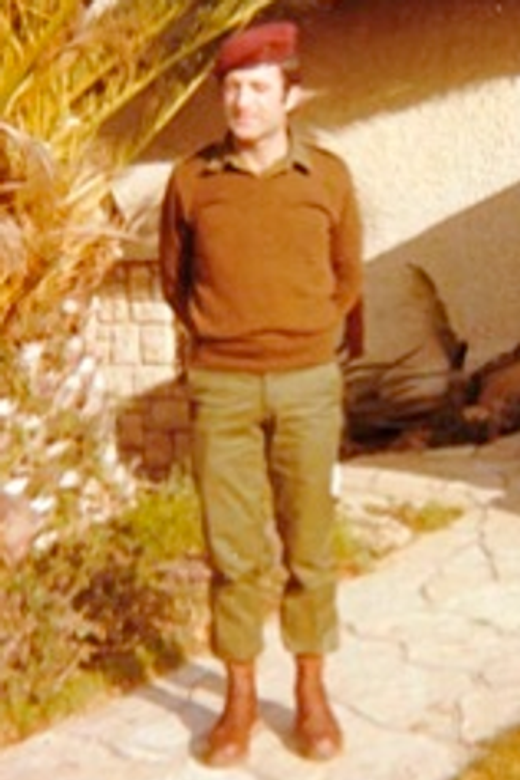
Gershon in the Israeli Army, circa 1960.
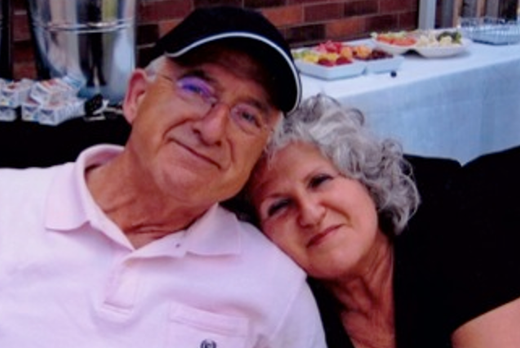
Gershon and his wife, Jane. Toronto, circa 2010.

